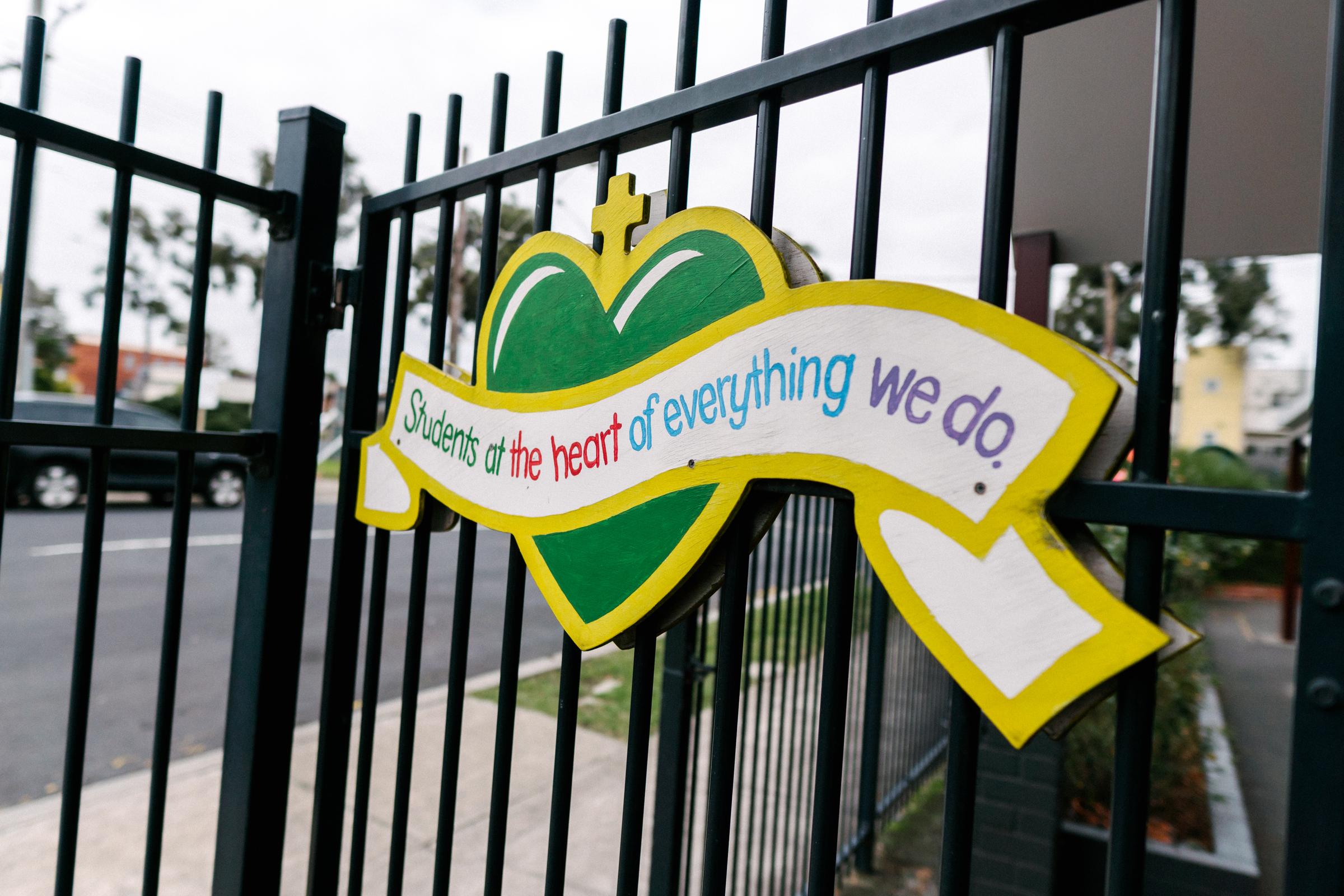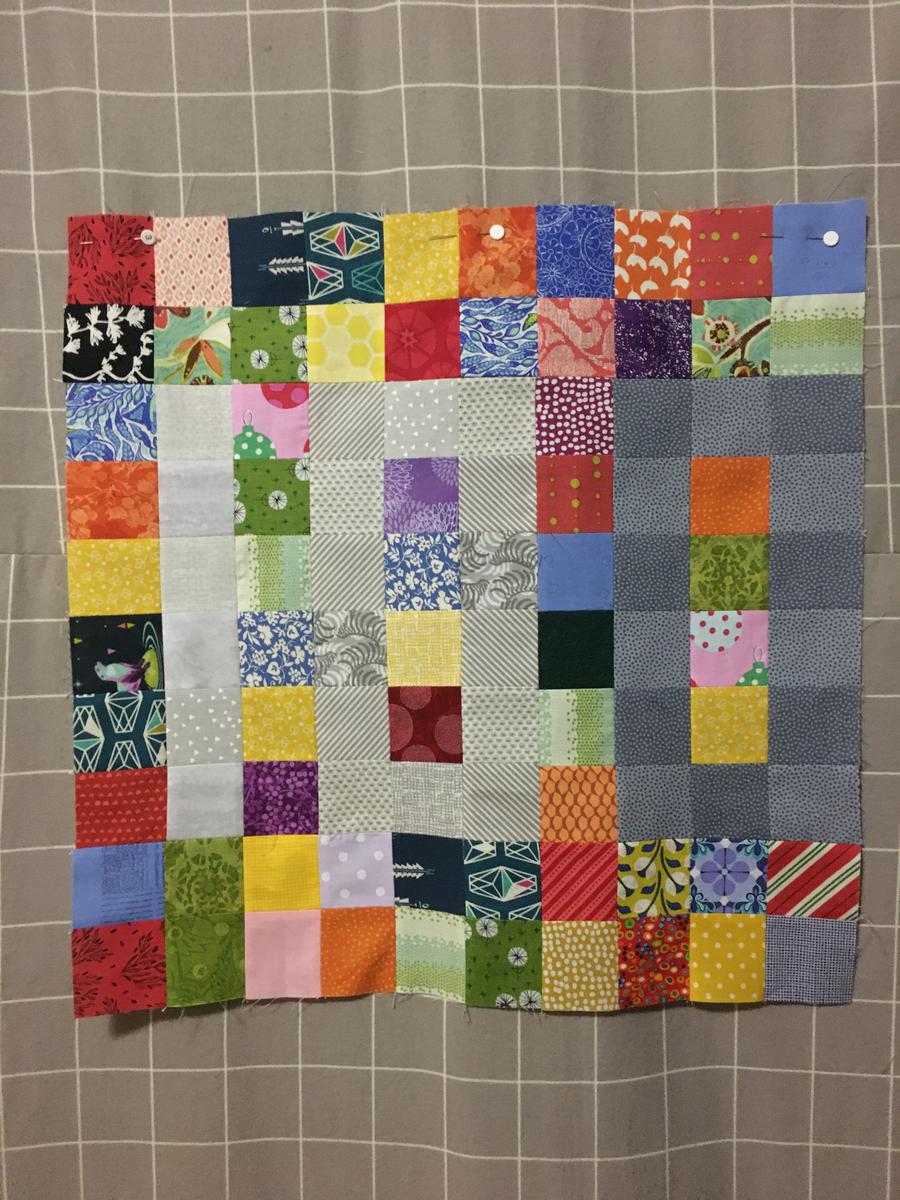
Principal News
Dear Sacred Heart School Community
Year Prep's Celebrate 100 Days
Whilst I am not an avid cricket fan, I would like to use a cricket analogy to describe the feat that is our Year Prep's first 100 days at school. If previous years Prep classes achievement of 100 days at school has been equivalent to scoring 100 runs in the backyard or on the beach, our Year Prep class of 2020 accomplishment of 100 days at school, is like scoring 100 runs at the MCG on Boxing Day against the best opposition in the world. This year has been unprecedented in the challenges to have beset our students, and their families. Just imagine the challenge when you are beginning to transition from preschool to school, with its new routines, friendships and expectations. It has been a tumultuous year for our Year Prep class of 2020, but through it all, they have continued to smile, give Bethany and Ann many great teaching experiences, and have made their parents and guardians proud. Congratulations Year Prep 2020.
On our school's Facebook page, (@SacredHeartPrimary School Preston) you can view the above video Bethany has put together, showing our Year Preps in their first 100 days at school. Bethany has emailed a copy of this video to all our Year Prep families.
Student Learning
In the Classroom News section of this newsletter, you will see examples of the learning experiences our students continue to have, despite the challenges of distance education. Again, thank you to our parents and guardians for your patience and support, and to our staff who continue to show through their passion and diligence the foundation upon which our mantra "students are at the heart of everything we do" is based.
Mid Year Reports
A reminder to all families who requested a hard copy of their child's mid year report, these can be picked up from the school office.
Distance Education Feedback
Last week, Belinda our Learning and Teaching Coordinatoremailed to all families a form requesting your feedback on this current phase of distance education. In an effort to meet our student's needs, and to give you the opportunity to support your children during this time of learning from home, we welcome your suggestions and ideas. Thank you to those families who have completed the questionnaire and we warmly encourage those families who have not, to do so if possible in the coming days.
Parent's/Guardians Wellbeing
Whilst we are acutely aware of our responsibility during this period to our student's wellbeing, we are also aware that our parents and guardians are experiencing unprecedented times. Again this week I would like to pass on information about support services for adults who are seeking help.
CORONA VIRUS MENTAL HEALTH & WELL BEING ON- LINE and PHONE SUPPORT
This support line and online resources is available for everyone in Victoria, whatever you are feeling during these challenging times – you can talk it through with one of our counsellors. We will provide advice and support based on your specific needs.
https://coronavirus.beyondblue.org.au/ - COVID Mental Health and Wellbeing Support Service - This website will be regularly updated with information, advice and strategies to help you manage your wellbeing and mental health during this time. And you can stay up-to-date by joining our email community.
Our Student's Wellbeing
Attached below is a resource passed onto me by Maria. I have included it in this newsletter as I fell it has some great practical advice for all parents and guardians in supporting your children during this period of COVID 19.
School Fees
As you may be aware the school has transitioned to a new accounting system and therefore we have not yet had the opportunity to produce tax invoices or statements for families.
When we are able to produce these they will be emailed to you via the new system.
Once this has occurred if you have any questions regarding payments you have made please do not hesitate to contact us via email on office@shpreston.catholic.edu.au.
We would like to thank all our families who have made payments by EFT over the last
couple of months.
Payments may be made in a number of ways.
1. EFT to the following account: Sacred Heart Primary School, Preston, General Account,
National Australia Bank - BSB 083 347 Account Number: 659293470. Please use the
student surname and class as your reference to enable to allocate the payment to the correct
family.
2. Over the phone by Credit Card to Maria on 9487 1001.
If you have questions or difficulty in meeting your obligations, please contact Mark either by telephone on 94871001 or via email at principal@shpreston.catholic.edu.au.
Please stay safe
Yours sincerely
Mark Tierney
Principal
Supporting your child to cope with the COVID-19 pandemic
If you are concerned your child has COVID-19 please call the dedicated hotline on 1800 675 398 or visit https://www.dhhs.vic.gov.au/coronavirus for more information.
Many parents are looking for advice about how to best support their children to cope with the coronavirus pandemic. With the situation rapidly changing, frequent news of people becoming unwell, and many children unable to continue with their normal activities, it is a very unsettling time for families. This fact sheet contains some information for parents and carers to help them support their children and answer their questions during this challenging and uncertain time.
Talk about coronavirus with your children
It’s important not to avoid talking about coronavirus with your children - avoiding the topic may make them feel more worried and unsure about what’s going on. Many children will already have thoughts and ideas about coronavirus, so start by asking them what they know. Use open-ended questions and address any worries, fear or false information they may have heard. It’s okay to tell kids that we don’t have all the answers but when we know more we will share it with them.
Be open and honest, but age-appropriate
Stick to the facts, but think about your child’s age when sharing information with them. Children of different ages will need different answers. Keep it simple and clear for young kids and provide more detailed information for older children and teenagers.
It’s important to remind children that although they might catch the virus, it is unlikely to make them very unwell. Tell them that if they do get sick it will be similar to a cold that they may have experienced before. They may get a fever, cough, runny nose or sore throat and be sick for a few days or around a week, and they will get better. It’s okay to tell children that adults are more likely to get sick, especially if they are elderly or have a medical condition. Let them know that most of the strategies they see in the community, like hand washing and social distancing, are actually to help protect the most vulnerable. By doing these things they are helping to protect others.
Stay positive and hopeful
It is helpful to stay positive and hopeful when discussing coronavirus with your children. Often the media focuses on worrying and negative aspects, so your children may become overwhelmed and think the situation is hopeless. Explain that there are lots of doctors and scientists working really hard to find out about this virus, and that they are learning new things every day. Let them know that many people around the world have recovered from coronavirus. It’s important for them to know that although things are different at the moment, and may be hard for a while, things will eventually return to normal.
Limit information children get through the media
There is lots of information in the media about coronavirus and it is likely that your children are seeing and hearing this through the TV, radio and online. Try to limit how much your child watches, hears and reads in the news, including on social media. Seeing graphic images or reading about the increasing number of cases of coronavirus can become overwhelming and upsetting. It’s especially important to try to limit your child’s exposure to frightening material in the news or online.
Focus on the things children can control
We need to help children focus on what they can do to stay safe and healthy. By giving children practical things that they can do will help them to feel empowered rather than helpless. Remind children about hand hygiene – make sure they know how to wash their hands properly and remind them to do this before and after they eat, as well as after touching their face or blowing their nose. See our video on keeping well. Teach them how to cough or sneeze into their elbow. Remind them to avoid touching their eyes, nose and mouth. Where possible, crowds should be avoided and people should refrain from close physical contact with people outside of their household. Show kids how to greet each other hands-free such as by touching elbows or feet.
Keeping well through physical activity, a healthy diet and plenty of sleep are also really important ways to support your children. Lots of children are disappointed that their regular sport and other activities may be cancelled. Find other ways to keep your kids active, such as spending time in the backyard or going for a family walk, run or bike ride.
Stick to routines where possible
Children need routine more than ever during uncertain and unpredictable times. Maintain as much normality in the house and daily life as you can and include family time. You can structure your child’s routine around meal time and bedtimes, as well as online learning activities for older children. Try to factor some physical activity into the day, as this is important for children of all ages, and good for adults too.
Show your children that you are calm
Children look to their parents and carers as a guide about how to react to situations. Even very young children are sensitive to stress and anxiety in adults. Parents and carers need to manage their own emotions and anxiety to help keep kids calm. Try not to talk to children about coronavirus when you are feeling particularly stressed or overwhelmed. You can ask your partner or another trusted adult to speak with them.
Look out for signs of anxiety or stress in your children
Everyone reacts differently in stressful situations. Some children are naturally more anxious than others, and coronavirus may affect them a lot. Keep an eye out for highly anxious or unusual behaviour in your children. Younger children may show signs such as a change in behaviour, being more emotional, having temper tantrums or trouble sleeping or eating. Older children can show these signs too or they may also appear distracted, have trouble concentrating or become forgetful. Some children may develop repetitive or obsessive behaviours, such as excessive fear of germs or contamination.
Make sure you keep having conversations with your children about other things besides COVID-19. Take the time to sit with your child and listen to what they are worried about. If you are concerned that your child is showing signs of high levels of anxiety or stress, seek advice from your GP.
Look after yourself too
Uncertain and stressful times can put a lot of strain on family relationships. In order to best support children, it is important that parents look after themselves too during this very stressful and difficult time. Try to find time for adequate rest and self-care. If you are feeling particularly stressed, overwhelmed or unsafe, or that you are not able to support your children in the way that you would like, please reach out to family and friends or your GP.
Key points to remember
Children look to adults as a guide about how to react in stressful situations
Stay calm, positive and hopeful when talking with your child about coronavirus
Keep information clear, honest and age-appropriate
Limit media exposure about coronavirus
Give children practical things to do, like good hand hygiene, to help them feel in control
Make sure you and your child stay physically active
If you or your child are feeling overwhelmed or stressed seek help from friends, family or your GP
Try to make time to answer your child’s questions and keep the communication channels open




